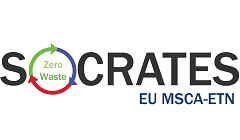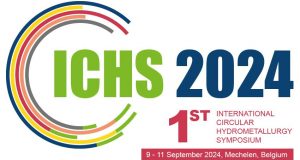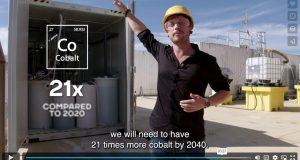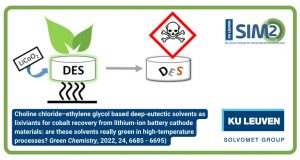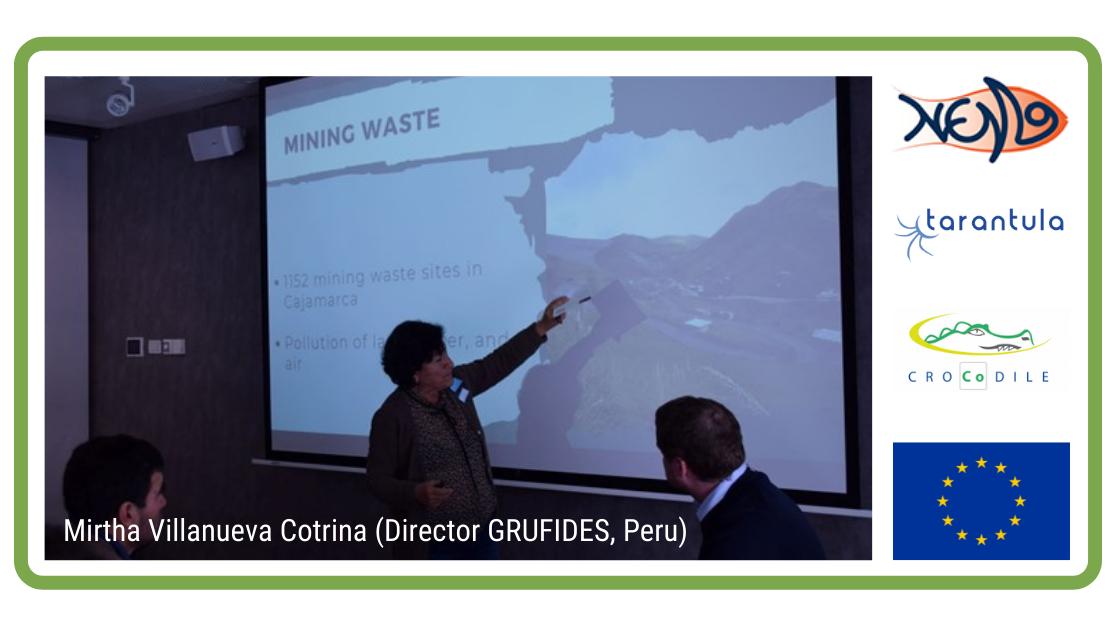Metal oxides are important technological materials that are found in end-of-life products, e.g. lithium ion batteries, catalysts and fluorescent lamps, in metal-containing industrial residues and as primary ores. Current extraction processes may have relatively high environmental footprints. In this study by Ioanna Maria Pateli and colleagues from the University of Leicester, Deep Eutectic Solvents (DESs) were employed as alternative and greener solvents for the extraction of various metal oxides. Their work was published in Green Chemistry.
The state of the art pyrometallurgical and hydrometallurgical methods used for their extraction may have fairly high environmental footprints. While mineral acids such as H2SO4 will always be the cornerstone of metal processing due to their low cost, there is a need to characterise alternative media, which may be more selective and sustainable.
In the study of Ioanna Maria Pateli and colleagues from University of Leicester, deep eutectic solvents (DESs) were employed as alternative and greener solvents for the extraction of various metal oxides. The work, which was performed within the Horizon 2020 ETN SOCRATES project (European Training Network for the sustainable, zero-waste valorisation of critical-metal-containing industrial process residues) was published in the high impact factor journal Green Chemistry.
Factors affecting the extraction of metal oxides in DESs
In this systematic study, the extraction of MnO2, MnO, Fe2O3, Fe3O4, Co3O4, CoO, NiO, CuO, Cu2O, ZnO and PbO was investigated in DESs. DESs are a eutectic mixtures of quaternary ammonium salts (e.g. choline chloride) with a hydrogen bond donor (e.g. oxalic acid) and are considered as promising sustainable candidates in the field of metal extraction.
Two main parameters were tested on the extraction of metal oxides; the pH of the DES and the hydrogen bond donor used and its complexing abilities. The results showed that the pH of the DES has a significant impact on the solubility of the metal oxides, due to the protonation of the oxide by the H+.
What was interesting, however, was that the complexing abilities of the HBD was even more crucial for an increased and also selective extraction of metal oxides. A very promising result was obtained using the DES oxalic acid-choline chloride that showed very high extraction efficiencies for MnO2 and Co3O4 and negligible dissolution of NiO, providing selectivity in this system. These three metal oxides coexist in cathode materials of lithium ion batteries, which makes the use of this DES very interesting, altough OPEX issues will obviously still need to be overcome.
Full reference paper:
The effect of pH and hydrogen bond donor on the dissolution of metal oxides in deep eutectic solvents. Ioanna Maria Pateli, Dana Thompson, Sahar S. Alabdullah, Andrew P. Abbott and Jennifer M. Hartley, Green Chemistry, 2020, 22 (16), 5476-5486. https://doi.org/10.1039/D0GC02023K
Acknowledgements
.jpg) This research received funding from the European Commission’s H2020 – Marie Sklodowska Curie Actions (MSCA) – Innovative Training Networks within the SOCRATES project under the grant agreement no. 721385 (project website: https://etn-socrates.eu).
This research received funding from the European Commission’s H2020 – Marie Sklodowska Curie Actions (MSCA) – Innovative Training Networks within the SOCRATES project under the grant agreement no. 721385 (project website: https://etn-socrates.eu).
The authors would also like to thank the Faraday Institution (grant codes FIRG005 and FIRG006) for funding (project website https://relib.org.uk). SSMA would like to thank the Ministry of Higher Education in Iraq for funding studentships and Al-Nahrain University for allowing study leave to carry out this research.
 Ioanna Maria Pateli, is a licensed metallurgical engineer from Greece. She obtained her barchelor’s and Master’s degree in 2016 from the National and Technical University of Athens with distinction. In 2017, she started her PhD studies at University of Leicester under the supervision of Professor Andrew P. Abbott. Her project is the “Ionometallurgical leaching of industrial wastes using Deep Eutectic Solvents”.
Ioanna Maria Pateli, is a licensed metallurgical engineer from Greece. She obtained her barchelor’s and Master’s degree in 2016 from the National and Technical University of Athens with distinction. In 2017, she started her PhD studies at University of Leicester under the supervision of Professor Andrew P. Abbott. Her project is the “Ionometallurgical leaching of industrial wastes using Deep Eutectic Solvents”.